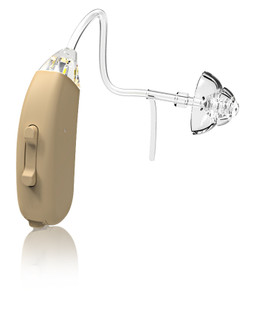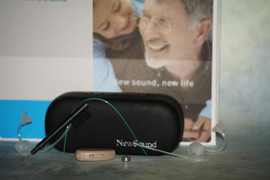The Surprising Link Between Exercise and Enhanced Hearing
Posted by DR Paul on Mar 14, 2025
In our fast-paced world, the significance of maintaining good hearing cannot be overstated. Whether it's enjoying the symphony of nature, engaging in a lively conversation, or simply listening to your favorite tunes, hearing enriches every aspect of our lives. As potential buyers of hearing aids, you are probably aware of the technological advancements that have made these devices more effective than ever. However, what if we told you that there is a natural way to complement your investment in hearing health? Recent studies have uncovered an intriguing connection between regular exercise and better hearing. This blog will explore how staying active can not only improve your overall well-being but also enhance auditory health—providing you with an edge as you embark on your journey with hearing aids.
The relationship between exercise and improved auditory function:
The relationship between exercise and improved auditory function may seem surprising at first glance. When we think about the benefits of exercise, we often focus on physical fitness, mental health improvements, and disease prevention. However, research is increasingly highlighting the impact of physical activity on sensory functions—including hearing. A study published in the American Journal of Audiology reveals that individuals who engage in consistent aerobic exercise are less likely to experience age-related hearing loss compared to those who lead sedentary lifestyles. Engaging in activities such as brisk walking, jogging, or cycling enhances blood circulation throughout the body, including within the tiny structures of the inner ear responsible for sound detection.
How exactly does better blood flow benefit your ears:
But how exactly does better blood flow benefit your ears? The cochlea—a spiral-shaped organ within the inner ear—is particularly susceptible to damage from poor circulation. It relies heavily on a steady supply of oxygenated blood to function optimally and protect its delicate hair cells responsible for translating sound waves into nerve signals. By promoting cardiovascular health through regular exercise, you're essentially fortifying these components against wear and tear over time. For those considering or already using hearing aids, this means potentially delaying further auditory decline and making sure that any residual natural hearing is preserved for as long as possible.
Exercise also impacts brain function positively by enhancing neuroplasticity:
Exercise also impacts brain function positively by enhancing neuroplasticity—the brain's ability to adapt and reorganize itself by forming new neural connections. This is crucial because effective auditory processing involves not just receiving sounds but also interpreting them accurately in real-time scenarios like crowded environments or complex conversations. Regular physical activity has been shown to boost cognitive abilities such as memory retention and problem-solving skills—all integral aspects when it comes to distinguishing sounds amidst background noise. For individuals utilizing hearing aids, enhanced cognitive function can greatly complement device performance by improving comprehension levels.
Moreover, engaging in regular exercise helps mitigate stress—a known factor that can adversely affect both mental clarity and physiological responses related to sensory perception including auditory processing speed. Stress-induced hormones like cortisol have been found to interfere with normal ear functioning; thus reducing stress through physical activity not only uplifts mood but safeguards against potential exacerbation of existing conditions related to reduced hearing capacity.
Finally, another noteworthy link between exercise and improved auditory health lies in its ability to control weight gain—a significant risk factor associated with increased susceptibility towards developing ontological issues like tinnitus (ringing in ears), which many people using hearing aids encounter alongside other types of loss conditions they manage daily via their devices' support systems tailored specifically around personal needs/preferences regarding amplification levels achieved during usage periods spent away from quieter settings where distractions abound aplenty unless detoured mindfully beforehand accordingly without delay!










